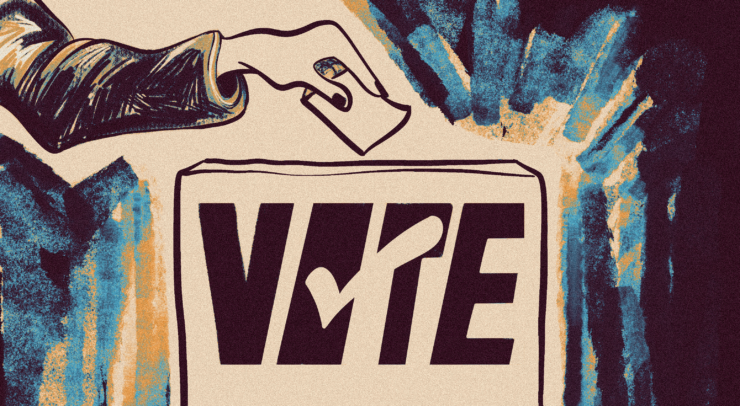U of O debate society worried that current year argument will lose potency in 2017.
For the University of Ottawa English Debating Society (EDS), the last twelve months have been a new golden age of reasonable debate thanks to the growing popularity of the “current year” argument.
“John Oliver and Justin Trudeau really started something special,” said EDS president Ganya Till. “Thanks to their public endorsement of such airtight reasoning, the art of competitive debate is now accessible to anyone with a working understanding of linear time.”
According to Till, the EDS experienced a massive boost in membership applications throughout 2016 because of this phenomenon, so much so that they’ve had to double their office space on campus to accommodate these newcomers.
“Whenever somebody disagreed with me in the past I would usually just call them a Nazi,” said Khan Trarian, one of the EDS’ newest recruits. “But now, I know better. These days I simply point my opponents in the direction of the nearest calendar and continue with my day.”
Besides this boom of renewed interest in the EDS, Till said that the current year argument has helped the club pick up a record number of local, national, and international debate tournament wins, which is unprecedented in their 136-year history.
“It makes sense,” said Till, explaining why this amazing rhetorical device eluded members the debate community throughout the late 19th and early 20th century. “Back then, life expectancy was half what it is today, so reminding people of their impending death by bringing up the current year probably wasn’t the quickest path to victory.”
However, Till and her fellow professional debaters are worried that these good times will come to an end once 2017 rolls around. Since early November they have experienced diminishing returns with their use of the current year argument, with a poor performance at a recent local tournament causing many to cast doubt on the effectiveness of this philosophical trump card.
“Maybe relying on this argument during such a crap year like 2016 was a bad idea,” said Till. “By bringing up memories of Brexit, the U.S. Election, and the deaths of prominent figures like David Bowie and Harambe, I think we might have poisoned the well for everybody.”
Because of these growing concerns, the EDS executive are organizing an emergency meeting for early December, where they hope to brainstorm a slew of new debate strategies that can help keep their organization afloat.
“Current year had its time in the sun, but now it’s time for more nuanced arguments to take precedence,” said EDS treasurer Pico Nalesch. “I hear slippery slope might be making a comeback. Or, we could just remind our opponents that the sky is blue until they admit defeat.”
The EDS’ future is even more uncertain now that their club funding has been slashed by the Student Federation of the University of Ottawa (SFUO).
While SFUO president Roméo Ahimakin refused to officially comment on this subject, he did send the Tomato an email that, he claims, should provide the EDS with some words of comfort during these trying times.
The email simply reads: “Come on, it’s 2016.”






